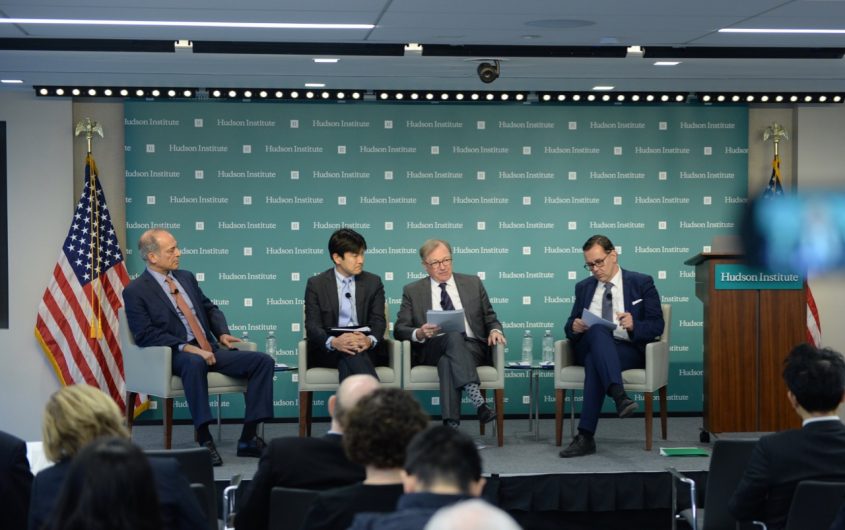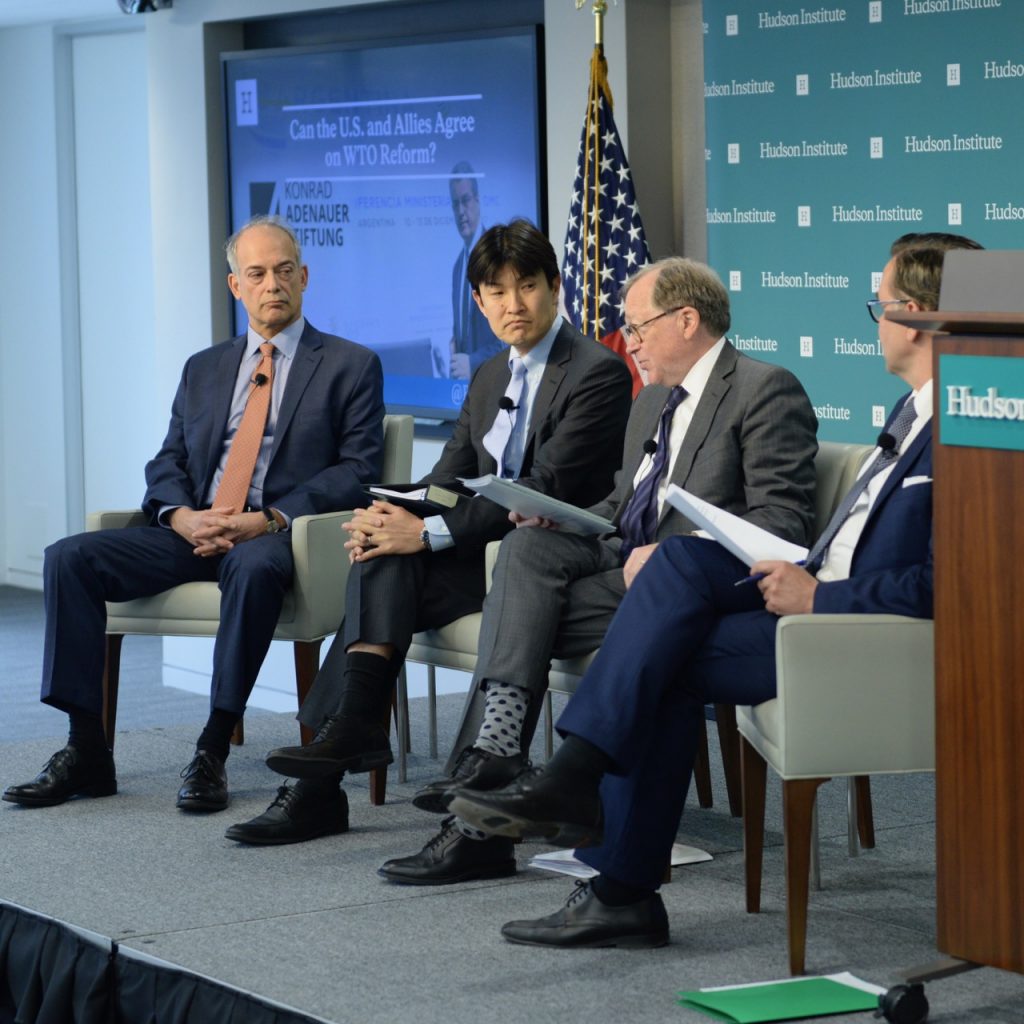AGI News
Can the U.S. and Allies Agree on WTO Reform?

Courtesy Hudson Institute

Peter S. Rashish
Vice President; Director, Geoeconomics Program
Peter S. Rashish, who counts over 30 years of experience counseling corporations, think tanks, foundations, and international organizations on transatlantic trade and economic strategy, is Vice President and Director of the Geoeconomics Program at AICGS. He also writes The Wider Atlantic blog.
Mr. Rashish has served as Vice President for Europe and Eurasia at the U.S. Chamber of Commerce, where he spearheaded the Chamber’s advocacy ahead of the launch of the Transatlantic Trade and Investment Partnership. Previously, Mr. Rashish was a Senior Advisor for Europe at McLarty Associates, Executive Vice President of the European Institute, and a staff member and consultant at the International Energy Agency, the World Bank, UNCTAD, the Atlantic Council, the Bertelsmann Foundation, and the German Marshall Fund.
Mr. Rashish has testified before the House Financial Services Subcommittee on International Monetary Policy and Trade and the House Foreign Affairs Subcommittee on Europe and Eurasia and has advised three U.S. presidential campaigns. He has been a featured speaker at the Munich Security Conference, the Aspen Ideas Festival, and the Salzburg Global Seminar and is a member of the Board of Directors of the Jean Monnet Institute in Paris and a Senior Advisor to the European Policy Centre in Brussels. His commentaries have been published in The New York Times, the Financial Times, The Wall Street Journal, Foreign Policy, and The National Interest, and he has appeared on PBS, CNBC, CNN, NPR, and the BBC.
He earned a BA from Harvard College and an MPhil in international relations from Oxford University. He speaks French, German, Italian, and Spanish.
AGI Geoeconomics Program Director Peter Rashish spoke on a panel on “Can the U.S. and Allies Agree on WTO Reform?” at the Hudson Institute on March 13, 2019.
About the panel

At the Buenos Aires WTO ministerial meeting in December, the U.S., the EU, and Japan agreed to work intensively to address shortcomings in the operations and rules of the WTO. Motivating the effort is the rise of mercantilist China, its flaunting of existing rules on intellectual property rights and subsidies, and its renewed support for state owned enterprises. Additionally, the U.S. critiques the plodding pace, overreach, and improper interpretation of rules by the WTO’s dispute settlement body. Participants will discuss these and other concerns regarding WTO reform.
Speakers
Stephen P. Vaughn, General Counsel, Office of the US Trade Representative
Paul Linnarz (Moderator), Head of Konrad Adenauer Stiftung, Washington, D.C. office
Thomas J. Duesterberg, Senior Fellow, Hudson Institute
Takeshi Komoto, Minster of Trade, Industry/Business, and Energy, Embassy of Japan
Peter Rashish, Senior Fellow and Director, Geoeconomics Program, American-German Institute
Peter Rough, Fellow, Hudson Institute
Watch the video









